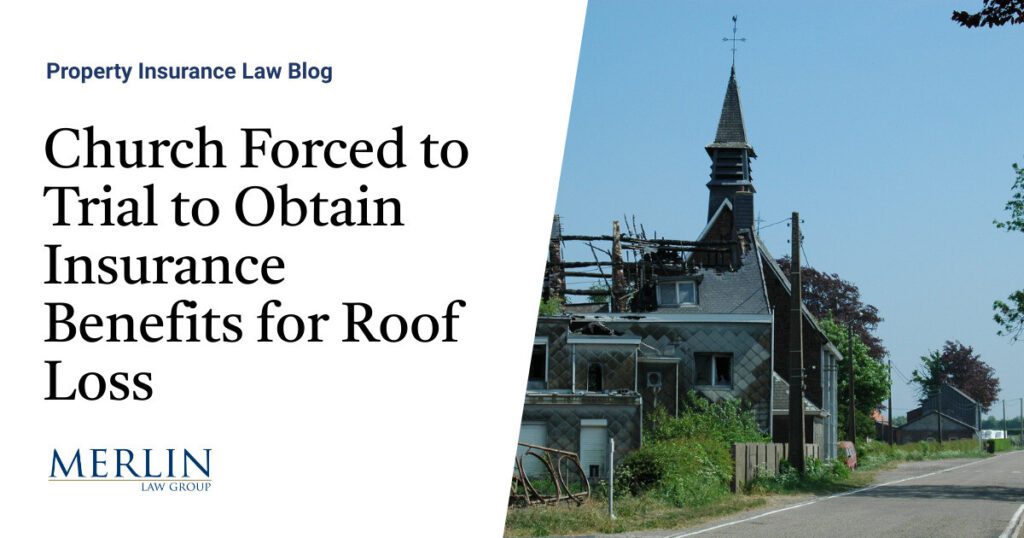Church Forced to Trial to Obtain Insurance Benefits for Roof Loss

The one thing that I almost universally hear when church members approach me for help in an insurance dispute is, “We never thought we would have to hire an attorney to obtain our insurance proceeds. We do not like filing lawsuits because we teach trying to resolve differences out of court.” But what does a church do when the insurance company does not pay a million-dollar bill?
This must have been the scenario facing Wake Chapel Church after it started having leaks in its roof following hurricane winds and a subsequent snowstorm. The jury found that the damage was caused by the snow and ice. The jury also found that the loss was not excluded by a laundry list of items the insurance company raised as excuses not to pay. The jury verdict for Wake Chapel Church was $1.1 million. Alleluia!
Part of the damage concerned water damage. Interestingly, the insurer published a blog post, Prevent Water Damage to Your Building and Facilities, which lists many of the reasons why it refused to pay the church:
“Water damage is one of the most common reasons why organizations of all kinds need to submit insurance claims. It doesn’t take long before water can cause thousands of dollars in damage—and potentially destroy property, including irreplaceable artifacts in your building and facilities.
Some of the most common causes of water damage include:
Wind-driven rain– Even the slightest amount of wind can cause water to seep into a building.
Gaps in windows or doors– These gaps can occur because of maintenance problems, poor workmanship, age, rot, damaged weather stripping or structure shifting.
Poor weatherproofing– Over time, weatherproofing material becomes frail or cracked, or chewed upon by rodents. Consequently, the wood rot and water damage could attract termites and other insects.
Poor grading– When you don’t have the proper slope on the ground surface around your building, water will pond and drain into the building’s foundation, which could cause damage to the floor or basement. Water ponding can also reach high levels, causing water to enter the building through weep holes or doorways.
Poor building maintenance– As buildings age and seasons pass, building materials tend to shrink, shift and deteriorate, and weatherproofing materials lose their effectiveness.”
Perhaps, as a matter of transparency and honesty, the insurance company should advertise at the point of sale and to its existing insured churches that these are reasons it will investigate to determine whether the loss is going to be covered. If found, the claim may not be paid.
Thought For The Day
Honesty and transparency make you vulnerable. Be honest and transparent anyway.
—Mother Teresa



